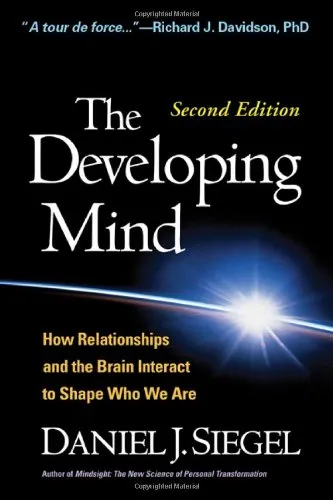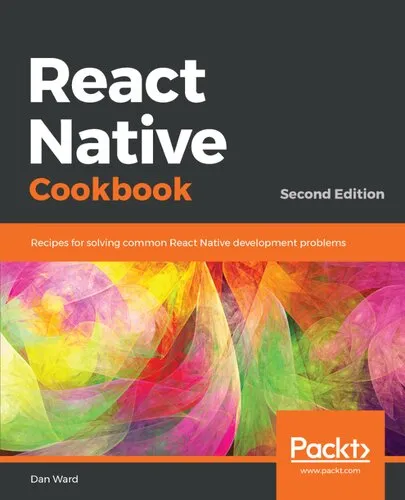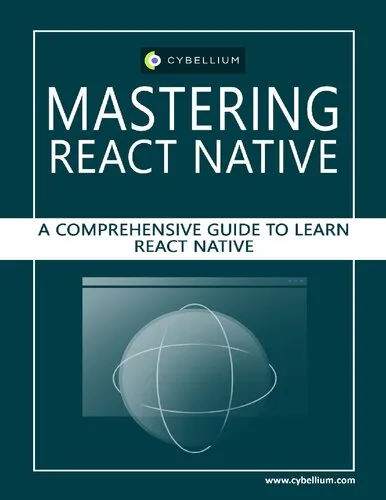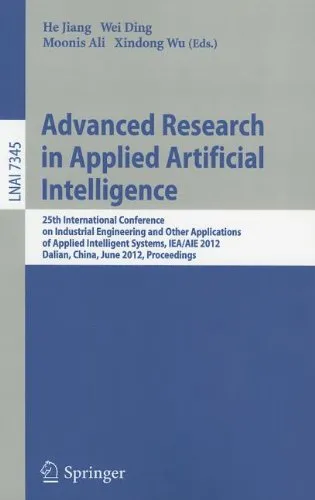Research and Development in Intelligent Systems XVI: Proceedings of ES99, the Nineteenth SGES International Conference on Knowledge-Based Systems and Applied Artificial Intelligence, Cambridge, December 1999
4.0
Reviews from our users

You Can Ask your questions from this book's AI after Login
Each download or ask from book AI costs 2 points. To earn more free points, please visit the Points Guide Page and complete some valuable actions.Related Refrences:
Introduction to "Research and Development in Intelligent Systems XVI"
Welcome to the sixteenth volume in the esteemed series of proceedings from the SGES International Conference on Knowledge-Based Systems and Applied Artificial Intelligence. This book captures the cutting-edge developments, research breakthroughs, and practical applications in the field of artificial intelligence (AI), as presented during ES99, the Nineteenth SGES International Conference held in Cambridge in December 1999.
At the heart of this volume lies the exploration of knowledge-based systems and their transformative role across industries. The contributors to this book are some of the most renowned names in AI, offering groundbreaking ideas and methodologies structured around diverse themes such as reasoning systems, machine learning, natural language processing, and applied AI methodologies. Through this book, readers gain insights into the dynamic and rapidly evolving AI landscape of the late 20th century—a foundation for many of today’s advancements in AI research and application.
Detailed Summary of the Book
The book is a compilation of rigorously peer-reviewed papers and presentations from ES99. Spanning numerous subjects, it addresses both theoretical foundations and real-world applications of AI. Key topics featured in this volume include advanced reasoning techniques, discovery systems, methodologies for machine learning, and innovations in natural language understanding. Moreover, the book delves into applied AI systems actively used in areas such as medicine, engineering, and enterprise operations.
A significant section of the book is devoted to the exploration of knowledge management systems that harness AI to improve decision-making processes. Another highlight includes the frameworks and algorithms enabling AI systems to function autonomously in dynamic environments. As practice is as critical as theory in this domain, the book ties fundamental concepts to their implementation—showcasing solutions that illustrate the convergence of research with tangible technological progress.
The comprehensive coverage ensures the book appeals to AI researchers, academics, and practitioners alike, bridging the gap between conceptualization and real-world application in a time where AI was emerging as a key technological driver.
Key Takeaways
- Cutting-edge methodologies in knowledge-based system design and development are discussed extensively, providing a strong theoretical foundation for AI enthusiasts.
- The book showcases impressive applications of AI in practical domains, giving readers a perspective on how AI was being used to tackle real-world challenges near the turn of the century.
- Recent advancements in machine learning frameworks and their application to evolving industrial problems are detailed, offering insights for both researchers and practitioners.
- The integration of natural language processing into knowledge-based systems is highlighted, emphasizing the importance of human-computer interaction.
- The book acts as a benchmark for understanding the progression of AI from conceptual research to practical innovation at the close of the millennium.
Famous Quotes from the Book
"The purpose of intelligent systems is no longer to only mimic human thought processes but to augment and enhance human decision-making in ways that were previously unimaginable." – Excerpt from Chapter 3.
"To understand the future trajectory of AI, it is imperative to revisit the challenges we overcame and the methodologies we devised during foundational years of study." – Foreword by the editors.
Why This Book Matters
"Research and Development in Intelligent Systems XVI" holds significant relevance for multiple reasons. First, it captures a critical moment in AI's evolution, documenting the transition from traditional knowledge-based systems to more sophisticated frameworks incorporating machine learning and natural language processing. This book allows readers to witness the progression of AI concepts that provide the foundation for modern technologies such as deep learning, intelligent assistants, and autonomous systems.
Furthermore, the practical orientation of many contributions to this book underscores AI's real-world utility long before the technology became mainstream. From early advancements in medical diagnosis systems to enterprise-level applications, the research documented here paved the way for the rapid AI adoption we see today. For researchers and academics, the volume serves as a rich source of historical insights into AI methodologies that spawned modern innovations.
More than a collection of academic papers, this book is a testament to the collaborative effort of researchers, technologists, and practitioners at the forefront of AI development in the late 1990s. It remains a cornerstone reference for anyone seeking to gain a comprehensive understanding of the past, present, and potential future of artificial intelligence.
Free Direct Download
You Can Download this book after Login
Accessing books through legal platforms and public libraries not only supports the rights of authors and publishers but also contributes to the sustainability of reading culture. Before downloading, please take a moment to consider these options.
Find this book on other platforms:
WorldCat helps you find books in libraries worldwide.
See ratings, reviews, and discussions on Goodreads.
Find and buy rare or used books on AbeBooks.
1190
بازدید4.0
امتیاز0
نظر98%
رضایتReviews:
4.0
Based on 0 users review
Questions & Answers
Ask questions about this book or help others by answering
No questions yet. Be the first to ask!

